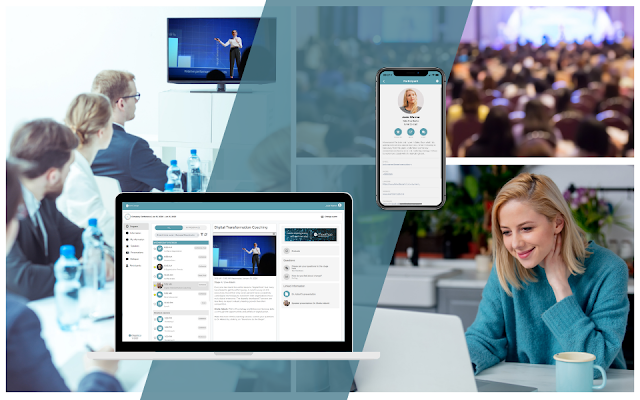At the start of 2020, brands globally canceled in-person events. In the year that followed, we saw brands alternating between virtual and in-person events depending on the localized lockdown restrictions. However, amidst all the movement and chaos one thing was loud and clear - virtual events have their merits that cannot be compensated with in-person events.
And thus emerged the need for a platform that supported hybrid events. A platform that seamlessly extends in-person events into the virtual space.
Image
Credits - https://meetappevent.com/questions-benefits-pitfalls-hybrid-events/
Here are three compelling reasons why you need a hybrid event management software to effectively deliver your event strategy:
● Branded Experience & Hyper-personalization
When an event planner wants to host online event they want their event to stand out from the crowd. But how do you differentiate your event from ordinary software? Hybrid event management software allows easy customization bringing alive your brand virtually as well as in-person. The software allows you to personalize platform elements such as logos, brand colors, and fonts to deliver a deeply branded experience. This in turn helps with brand recall, trust, familiarity, and building brand identity in the audience’s mind. Apart from branding, you can also segment the audience based on several factors and deliver to them a hyper-personalized event experience.
● Increased Engagement & Networking
The crux of virtual event management software is to save money and time and make the process more efficient. More importantly, it helps in engaging consumers both in person and virtually. Hybrid event management software allows users to engage with each other in multiple ways using features such as 1:1 chats, virtual video calls, rooms, and lounges. A wide variety of gamified tools like live polls, chats, Q&A sessions, helps in keeping users engaged.
Event networking is the reason a lot of people attend an event in the first place. Helping them meet their goal is beneficial for your business as it generates substantial leads and lasting customer relationships. Even your sponsors can host online events, multiple panels, workshops, or presentations virtually to integrate your in-person sponsor promotion strategy.
● Meaningful Insights & Improved ROIs
Since attending, listening, and engagement happens over software, it allows you to dive into deep insights to evaluate the success of your events. Data and insights on the website, registrations, and engagement can help you segment the audience and create post-event campaigns. If you’re hosting multiple events, you can view insights across all events, learn from them, and improvise on future strategies to increase your ROI further.
Want to set up a successful event campaign for your business? Get Hubilo’s cloud-based event management software to drive your hybrid events toward excellence, yielding better business results.

Comments
Post a Comment